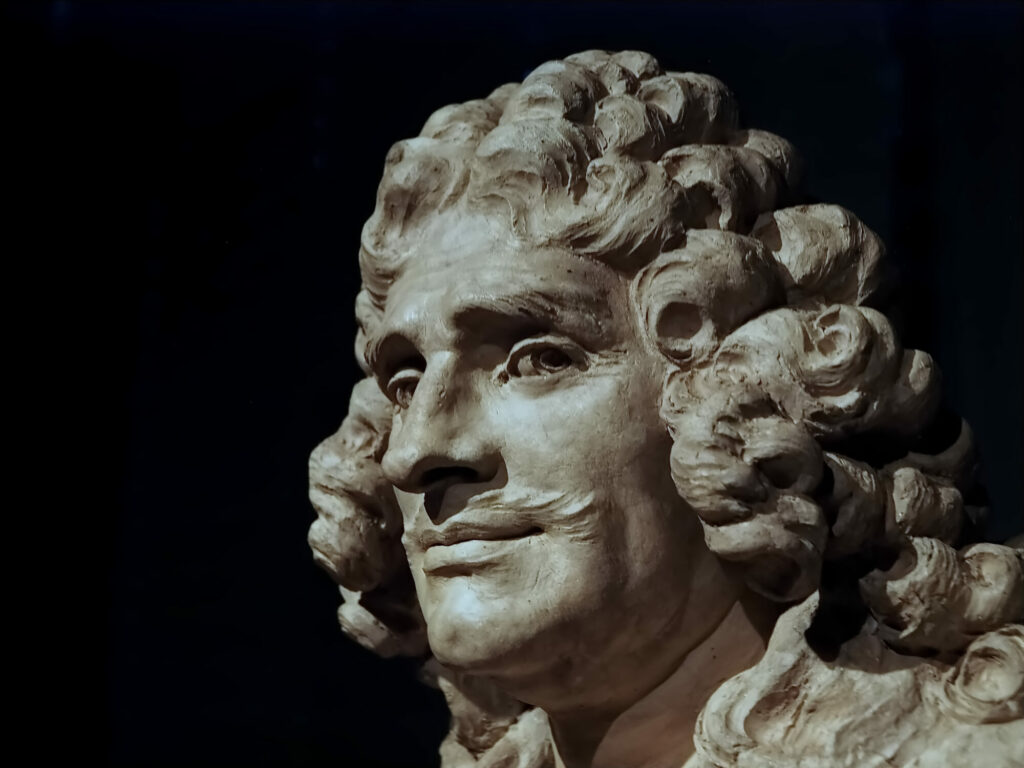
Molière was born in Paris in January 1622. January 15 is generally considered the date of birth of the actor, theater director and playwright. According to some biographers, he was baptized only on that day in the Church of Saint-Eustache in Paris.
Whether he saw the light of day on January 15 as the son of Tapiessier de Roi, a royal decorator, or received religious light as Jean-Baptiste Poquelin: The Paris Comédie-Francis Theater begins Molière’s year on January 15 “Tartuve” about hypocrites fanatics and ideologues.
Enlightenment through sarcasm and intelligence
It’s the most traditional theater in France, also known as the House of Molière, although the overall talent – he wrote works, directed and played the main roles – died seven years before its founding. The theater was created in 1680 at the request of Louis XIV through the union of two powers, including that of the playwright who died on February 17, 1673.

In France, Molière is considered a national hero. As a synonym for French, the term Molière became popular in the 18th century. Until then, his works were carried out beyond the borders of France. Introduced comedy, once considered a subgenre, equals tragedy. However, Moliere’s goal of enlightening people through sarcasm and wit also earned him many enemies.
Why does Comedy Molière work with audiences of all backgrounds and eras? Didier Sincal says that Molière is the greatest classic of all time. For the writer, historian and literary critic, Molière is not content with making people laugh. It was not necessary to adapt his works to a temporal context either. Everyone understands his language and the irony of his dialogue, he says in an analysis of Moliere’s importance today. W: The hypocrites and the greedy in power and money will most likely remain as long as there are people.
Psychiatrist Prosper Despain held the same opinion more than 100 years ago. For the paramedic, Moliere was a psychiatrist. As he wrote in his 1884 treatise The Science of the Human Heart or Psychology of Emotions and Feelings according to Moliere’s work, he drew his lessons from the careful observation of humans and propagated them through originality and creativity. Despin (1812-1892) studied Molière’s works in detail, including “Mesanthrope” and “The Reluctant Doctor”.
Moliere’s work is world-renowned. Not much is known about him personally, starting with his date of birth. His work was interpreted not only as a mirror of society at the time, but also in parts of it as autobiographical.
In the comedy “Die Schule der Frauen” of 1662, he defended the right of young women to marry for love. Coincidence or not? On February 20 of the same year, at the age of forty, he married Armandi Béjart, who was about 20 years younger than him. The connection was considered scandalous not only because of the age difference. Armandi was the sister of Madeleine Biggart, Moliere’s mistress. Even evil tongues claimed to be his daughter.
Moliere had to enter the royal service like his father. But this did not interest him as much as his interest in studying law and being accepted into the Bar. In 1643 he founded his own theater company with actress Madeleine Béjart and shortly thereafter took the name Molière. In the past, comedians often used pseudonyms to spare their families the shame. The Catholic Church at that time excommunicated actors whom it considered “corrupt”.
Molière toured France with his band for over twelve years. In 1658 he returned to Paris. There he was noticed by King Louis XIV – and he became his patron.
Molière wrote his last play, The Imaginary Invalid, which premiered in Paris on February 10, 1673. Irony: in it he played the lead role of the hypochondriac Argan, who imagines that he is ill. Only: Moliere was really sick. He was suffering from tuberculosis. At the fourth performance on February 17, he developed a hemorrhage that died shortly thereafter.
Because Molière was expelled from the church as an actor, his body had to be buried in a mass grave. However, with the King’s help, Molière’s body was secretly buried without ceremonies in the darkness of February 21 in Saint Joseph’s Cemetery. In 1817 the remains were moved to the famous Père Lachaise Cemetery, laid out in 1804.

“Travel aficionado. Certified problem solver. Pop culture guru. Typical writer. Entrepreneur. Coffee trailblazer.”








More Stories
Magic Abba – Europe's #1 Music Show Live with the Band
Joseph Hader faces 'turbulence surrounding a peaceful person'
Live streaming platform Kino VOD Club brings focus to Graz